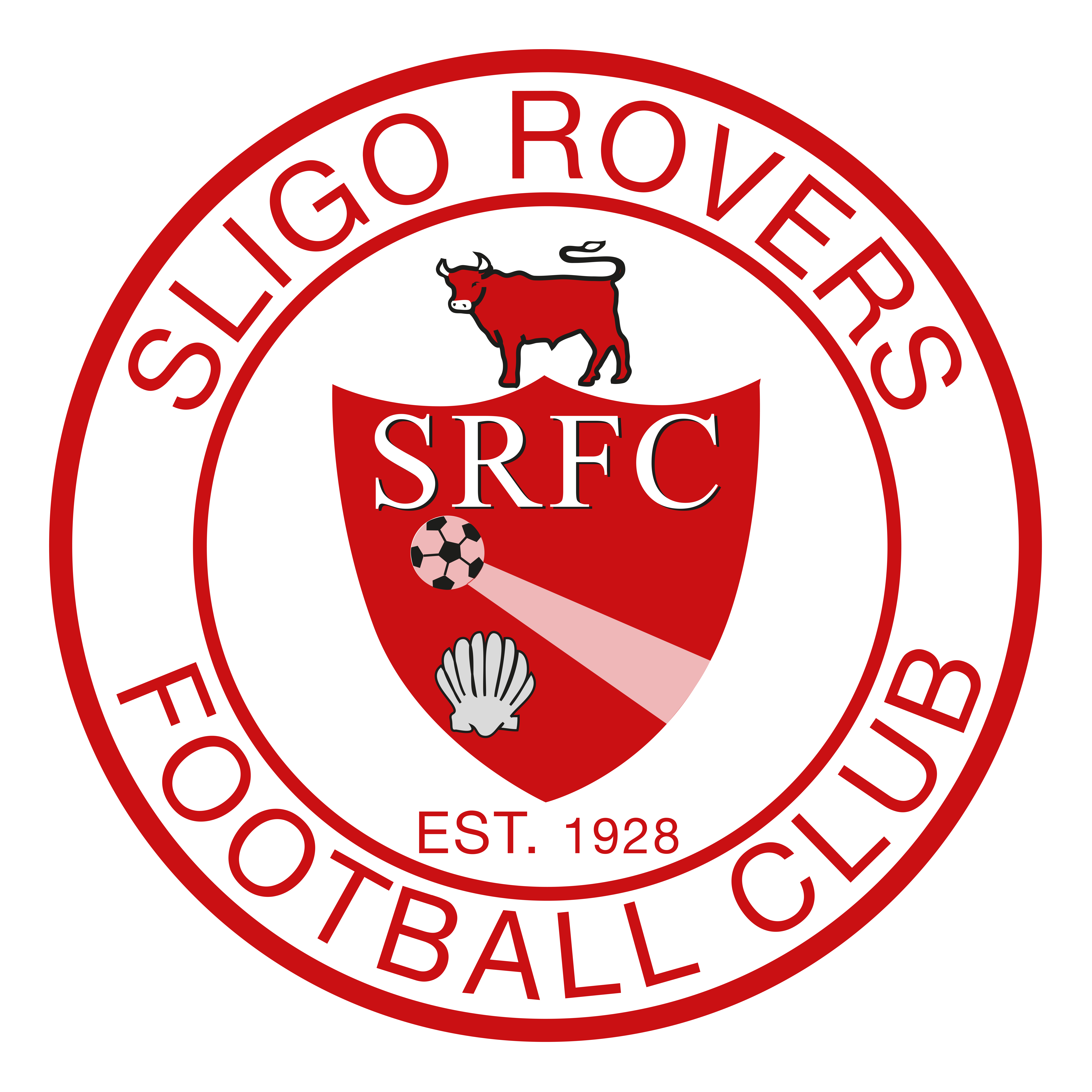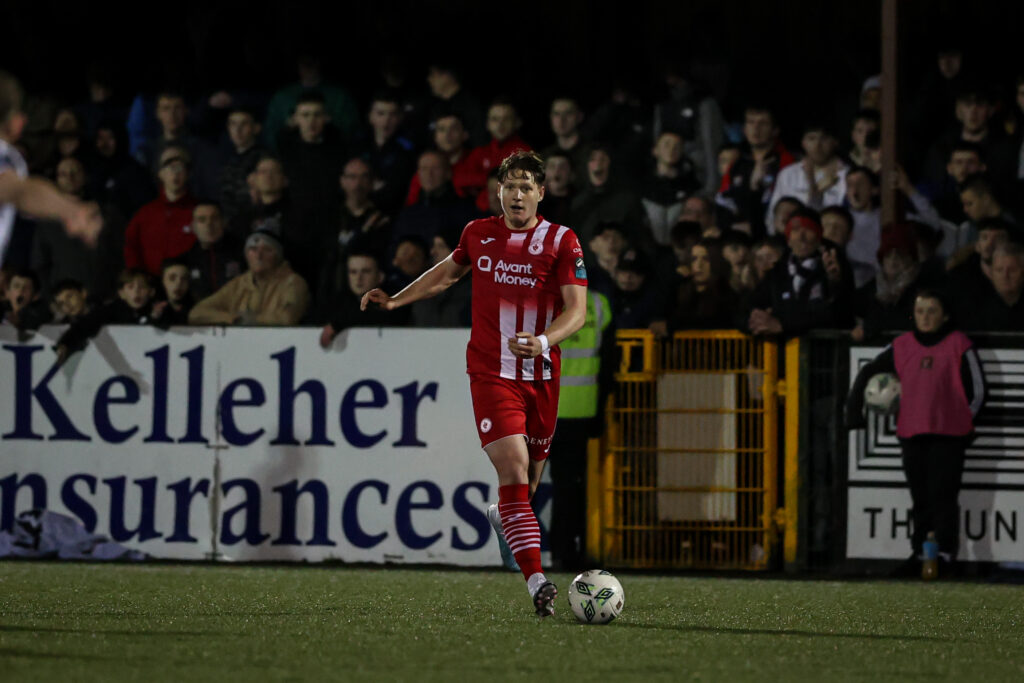Nando Pijnaker arrived in Sligo on loan from Rio Ave in Portugal last season, signed by former manager Liam Buckley as defensive cover for the departed John Mahon.
Since then, it’s fair to say that Nando has endeared himself to Sligo Rovers supporters across the age spectrum with his no-nonsense and effective style of defending as he signed a permanent deal for the current season.
However, it has been a long and winding road to The Showgrounds for the young footballer from the other side of the globe.
Nando completed a ‘tour of Europe’ between 2020 and 2022 on a journey that took him from New Zealand, to Sweden, Denmark, Switzerland, Portugal and Ireland as he joined Sligo Rovers last year from Rio Ave, a move that was made permanent for the current (2023) season.
A New Zealand international who made his senior debut in November 2019, along with Max Mata, as a substitute in a friendly against Lithuania in Vilnius.
Nando also featured in the final play-off game for the 2022 World Cup qualification as Costa Rica edged out New Zealand by 1-0 for the last remaining spot in Qatar.
Nando celebrated his 24th birthday last February and is delighted with the way his move to Sligo Rovers has worked out as his main aim was to play regularly and that has been achieved.
He was born in Holland (Netherlands), but moved to New Zealand with his older sister and parents when he was three years old.
“My grandmother was Dutch, but she moved to New Zealand after the War and my mum (Marianne) grew up there, she went back to Holland to visit and ended up staying for more than 20 years,” explained Nando.
“She met my dad (Rene) and my sister (Kallista) and myself arrived, my mum missed New Zealand and we went back there when I was three, sadly, my dad passed away in September 2018 after a short illness,” explained Nando.
A link with Sligo Rovers can be made through one of the New Zealand international team’s assistant-coaches, Rory Fallon, whose father Kevin was a stalwart member of the Bit O’Red team that reached the 1970 FAI Cup final and who, in total, played over 100 times for the club between 1967 and 1970.
Kevin left Sligo Rovers at the end of the 1969 / 1970 season and was transferred to Southend Utd and he later went to New Zealand where he coached the national team at the 1982 World Cup and his son, Rory, is now an assistant-coach.
Nando takes up the story again:
“Rory is a good guy and has been part of the coaching team with New Zealand since I joined the senior squad in 2019, I made my debut in a friendly against Lithuania that year, myself and Max (Mata) came on as substitutes at the same time,” said Nando as he outlined his early years and his introduction to football.
“We lived close to the town of Rotorua in New Zealand, its population is around 70,000, and myself and my sister went to primary and intermediate school there and then I went to high school until I was about 15.
“I wanted to play football at a higher level than was available locally and I ended up going to Wellington to the Ole Football Academy, it was a big decision as it was about a seven-hour drive from Rotorua and meant living away from home.
“I was only 15 or 16 and I was moving away from home, it was tough, but it was what I wanted and there was some school involved as well.
“It was football every day and I loved that, there were about a dozen of us that came in that time and I didn’t know anyone, but I settled into it gradually.
“The Academy was connected to a club, Western Suburbs and then there was a move to Eastern Suburbs, there was a Central League title in 2017 with Eastern that earned qualification for the Oceania Champions League the following season by which time I had moved to Europe,” he added.
Nando was selected for the New Zealand Under-20 team for the 2019 World Cup and then made the move to Europe where he joined former coach Declan Edge in Sweden with Torslanda IK, a club run in partnership with the Olé Academy.
“When I was there, I got an offer of trials in Switzerland with Grasshoppers, they were in the second tier at the time and for them, a big club, that wasn’t good,” he explained as he endured a frustrating time with lots of trials.
“I had trials, they offered me a contract, but the Board of the club was sacked and when they got a new Board in place, I was told I’d have to go back for more trials,
“I did the trials again, November time, I was told I’d be signed, but then the new Board took a break for Christmas and I was told I’d have to come back in January.
“At that stage I went home to New Zealand for Christmas, but I did the trials again and in February was eventually signed, Max was there also, I spent a season there and played a few first team games and was also with the under-21s.
“When the season ended in Switzerland I went to Portugal and signed a four-year deal with Primeira Liga club Rio Ave in 2020, the coach liked me, but after a couple of months he was sacked, a new coach came in and he lasted about six games, and then another guy came in, it was a bit chaotic and the club was relegated.
“At that time, I also went to the 2020 Olympics (which took place in 2021) with the New Zealand team and we did well, we beat South Korea and had a draw with Romania, that was enough to get to the last 16 where we played Japan, but we lost in a penalty shoot-out.
“I really enjoyed that, but then when I came back to Portugal, I had a four-moth loan in Denmark with FC Helsingør for the rest of 2021.
“I went back to Portugal, my first priority was to play regularly, I was asked about going to Ireland to Sligo Rovers and I knew that Ryan De Vries, also from New Zealand, had played with the club.
“Liam Buckley was the manager when I joined on loan and I really enjoyed it once I settled in, it’s a tough environment in the League of Ireland, but I want to play regularly and I’m getting the chances.
“We have a really good panel of players and it’s a bonus that Max is also here as we are good friends at this stage.
“I like the place, Sligo is a bit smaller than my home town in New Zealand, but the people are very friendly and that’s a great help when you are new to an area.
“I can speak Dutch and English, a little of Portuguese, enough to get by, but English is the common language amongst us all and hopefully I can achieve success with Sligo Rovers, that’s what I want and I know it’s what the fantastic supporters want also,” he concluded.

